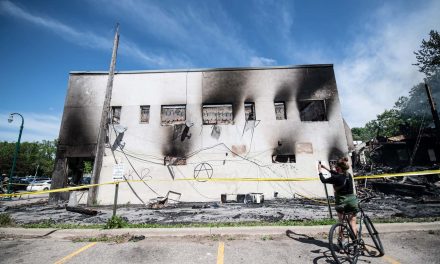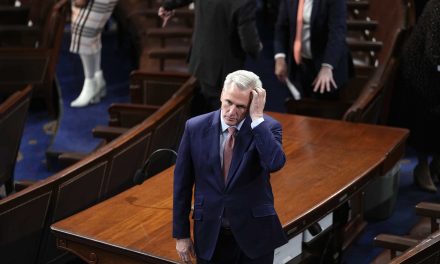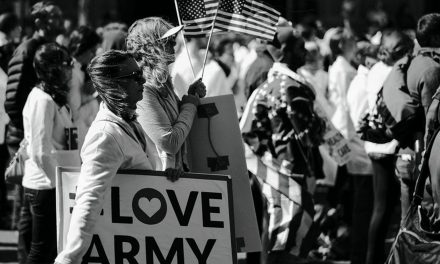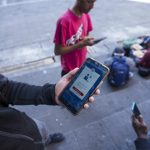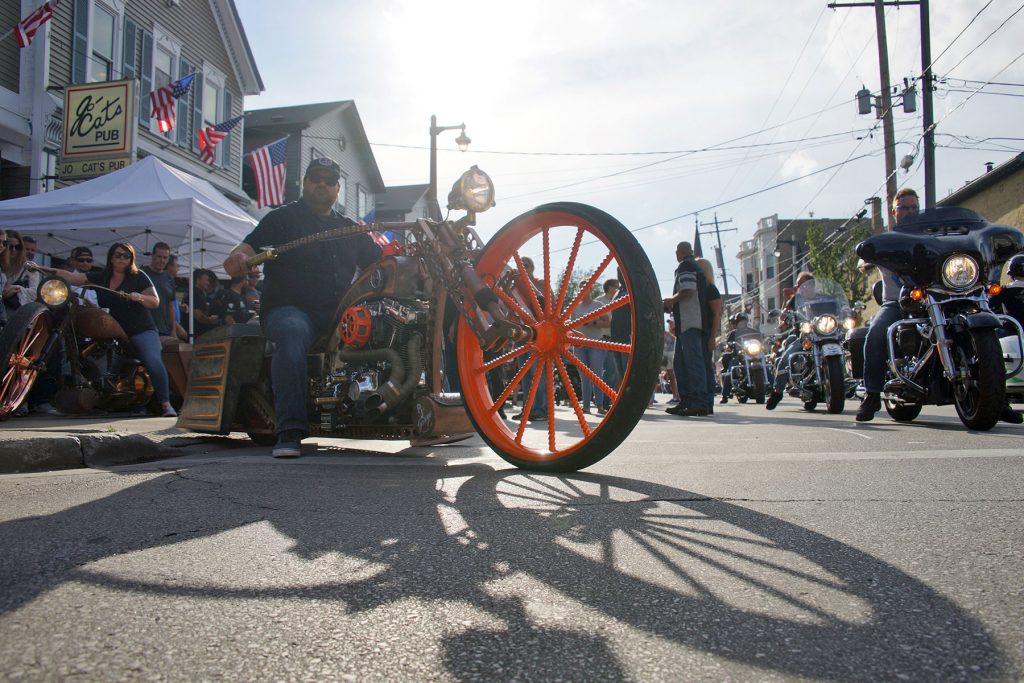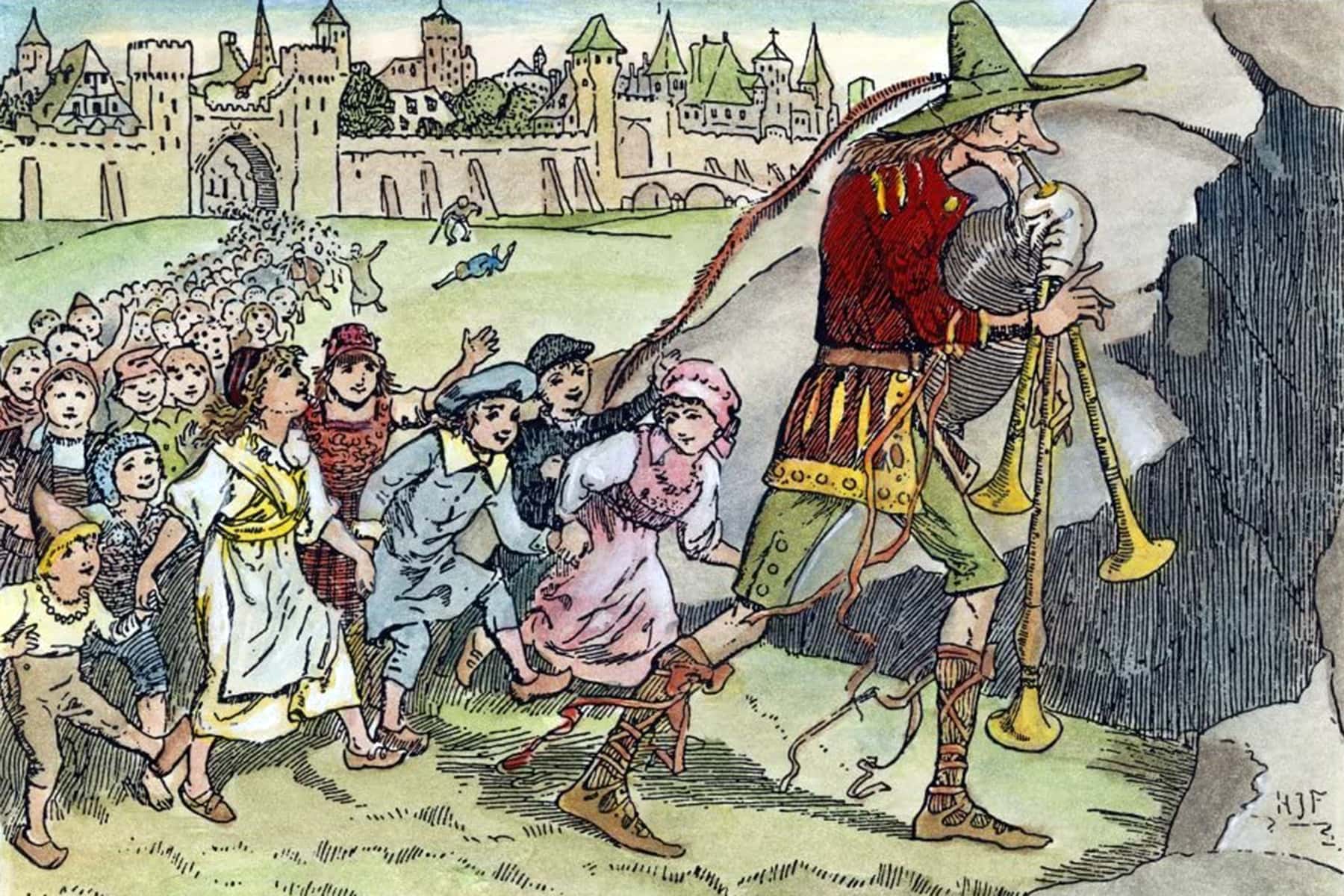
America is dancing down the street behind its very own Pied Piper. A boisterous and grandiose entertainer with a long red tie who has tempted many a citizen with a tune of prosperity, freedom, and greatness. A tune that compels them to leave their homes and join millions of others, hand-in-hand, through the streets and into the waiting arms of a global pandemic.
His latest melody has captivated the young and the old, the rich and the poor, and those on the left and the right. From villages and hamlets that sing the Pied Piper’s songs, to those who mocked him and his followers as “deplorable,” across the country many Americans on both sides are lined up behind him, bouncing to the tune he now plays with a wry smile on his face. It’s a song demanding that America reopen, with lyrics that compel whole communities to disregard science, compassion, and common sense precautions that could save tens of thousands of lives.
And like the story of the Pied Piper of Hamelin from 1284, many in 2020 will be enthralled by his tune, while others will cover their ears, avert their eyes, and choose not to follow. Not because they are deaf, blind, or too weak like those who survived in Hamelin, but because they are wise. For the Pied Piper of America, this fable will have a far more deadly ending for those who find themselves dancing to the beat and following him down this path. Our 21st century fable will not be measured by the deaths of rats or children, but of the tens of thousands of mothers, fathers, sons, and daughters across the country who will die from this pandemic. Were this journey only the stuff of fables and fairy tales, the ending of the story with the American Pied Piper would likely go something like this:

So outside they went dancing to the American Pied Piper’s song. Side-by-side and arm-in-arm with glee in their hearts and hope in their eyes, as their feet kept pace with the tune that wafted all around them. They danced inside crowded taverns, celebrated in houses of worship, and huddled together in offices, coffee shops, and factories. Up, down, and all around they embodied the piper’s tune listening to the celebratory beat while inhaling, and exhaling its infectiously sweet air. The tune he played drowned out the wisdom of the elders and mystics who preached of social distancing, donning masks, and handwashing. Nay, the benefit of their knowledge was lost amidst the foolish, but rhythmic tune of reopening, a return to better days, and of the soon to be unfulfilled wishes of safety, riches, and a global pandemic that would magically go away.
Across the country the glow of red hats, shouts of greatness, and the colorful unmasked crowds that accompanied the piper’s music made the masses forget about the other songs he had played before. Millions had long danced to this piper’s music, but his new song of reopening was one that was enjoyed by those who once despised his earlier tunes. But soon, they too joined in.
Quickly they found themselves embracing friends they had not seen for months, while standing shoulder to shoulder with unfamiliar faces who had been with the Pied Piper all along. Faces who for years had danced to the other songs that he had played. Songs of celebration when good people ran over an innocent woman. The joyous ballads sung after children were locked in cages, and the happy and self-righteous songs about shithole countries and those he despised as “low IQ.” A veritable symphony of nationalism and supremacy that was once heard by a relative few, was now heard by all.
The musical legacy of those notes formed the cadence that lay beneath the rhythm Americans were now dancing to. They saw who was in the crowd with them, locked arms, and still they danced. Still they followed.
The crowd swelled as if keeping pace with the intensity and growing vitriol of the piper’s song. Caught in the rhythm, enthralled by the moment, they failed to see the irony that defined the song they danced along with. Written by the piper, the same one who once sang that he could get away with murder. A song they now danced to and one that they failed to realize would prove him right.
Still they danced. Leaving their belongings along with their compassion behind. They were caught up in the revelry, following the Pied Piper and never looking back at the devastation, pain, misery, and death that would be left in their wake. Calls for calm, and pleas for a more reasoned approach to the pandemic were all drowned out by the noise.
And the ever present silence of 100,000 dead was given no chance to reflect or distract them from the path they now found themselves on.
The throngs of those following America’s Pied Piper grew, as parents let their children dance with other children. They celebrated his song with front yard barbeques, fist bumps, hugs, and handshakes. From playdates, to summer camps, crowded restaurants and concerts, people from every town, hamlet, and shire all danced to the tune that the pandemic would “magically go away.” The music conjured visions and crafted delusions that the pandemic, having destroyed the lives of millions, could be cast aside with a little music from the piper’s flute, and the sheer will and conviction of all his followers.
What once was merely a crowd of the Forgotten Americans who always loved the Pied Piper’s music, now reflected the broad diversity of a scared and confused nation. Democrats, Republican, and people of all faiths, races, and ethnicities, followed the Pied Piper through a trail marked by lies, corruption, racism and greed.
But along the path those in the crowd could see people looking out their windows with concern. Not protesting or shouting, but simply standing behind doors with a look imploring those following the piper to no longer follow. They too were ignored.
Many were cast aside and seen by the villagers as fools and non-believers of the Pied Piper’s wisdom and the magic of his song. They were belittled for their lack of faith and lack of loyalty, and at times threatened with nooses, guns, and violence.
Those who chose to stay inside did not do so because they were blind to the beauty of the red hats and the size of the celebration. Nor did they not follow because they were too weak to dance or too deaf to hear the tune. Those behind doors, six feet apart from one another and with faces behind masks, remembered the words of the mystics and the elders. They had not forgotten about the other songs played by the Pied Piper, of his lies, deceit, and corruption.
They stayed behind knowing they would be outcast, and sacrificed what those dancing called freedom, in the hope that compassion for one another would prevail. They prayed that the piper’s music would not lead the crowd of millions to their deaths. Hoped, but sadly knew that those who danced past their house may soon have their infectious tune take hold and bring their shouts of joy to an abrupt end.
Like all songs, this one also reached its end. Slowly the dancing stopped and the crowd began to settle, trying to catch their breath from the long and excited journey. Their surroundings were now unfamiliar, as were those next to them. As a sense of disorientation settled in, the certainty of tomorrow that met them at the end of every day was now gone. So as they stopped to catch their breath, many realized that they could not.
After months of playing his tune, America’s Pied Piper finally took the flute from his lips and the crowd anxiously waited to hear what he would say. How soon would his promises be kept, and how quickly would the magic return to their village? They cast aside the pandemic that had killed so many, and they waited and waited.
But the Pied Piper did not speak, nor did he look any of his followers in the eye. WIth ease and comfort and relative calm, he put the flute back in his pocket and stepped into a carriage that had been awaiting his return. The door was shut for him, and off he went.
Millions of Americans stood there bewildered, dismayed, and uncertain about what to do next. Gone were the high fives, the beer stopped flowing, and the flames from firepits were gradually reduced to ashes. After months of elation, silence fell upon the countryside. Silence in a crowd of millions, but slowly one that was interspersed by a new chorus. This song began slowly with stochastic rhythm and no words to accompany it, yet still it grew. Not the songs from a flute, or from the voices of a choir. No, the song that now spread across the villagers was one of dry coughs, moans of pain, with lyrics of worry, concern, and an abundance of fear.
As these days turned into weeks, some would eventually find their way back from where the Pied Piper led them, but many would not. Their dreams forever dashed, their lives forever changed, and for many their lives now lost. Yet off in the distance they could hear America’s Pied Piper composing yet another song, not about their journey, or for the lives that were lost. His new tune was one of congratulation, laughter, and victory. A tune made not for the enjoyment of millions, but simply for his own.
© Art
“The Pied Piper leading all of the children out of Hamelin,” H.J. Ford, 1890

